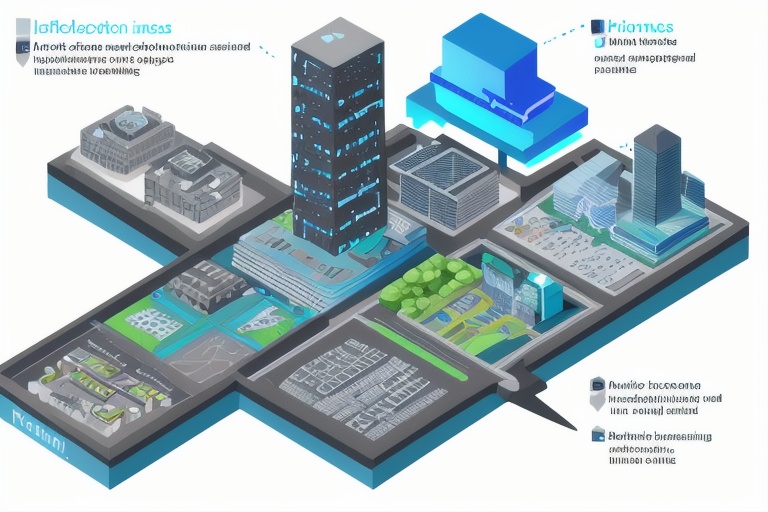Artificial intelligence (AI) has swiftly moved from the realm of science fiction to become a cornerstone of modern technology, shaping the way we live, work, and interact with the world around us. As with any transformative technology, AI's rapid evolution brings a mix of anticipation and apprehension. While industry leaders, tech enthusiasts, and academics are all weighing in on its potential, the conversation echoes a common theme: the balance of AI's vast capabilities with its ethical deployment.
Artificial intelligence (AI) has swiftly moved from the realm of science fiction to become a cornerstone of modern technology, shaping the way we live, work, and interact with the world around us. As with any transformative technology, AI's rapid evolution brings a mix of anticipation and apprehension. While industry leaders, tech enthusiasts, and academics are all weighing in on its potential, the conversation echoes a common theme: the balance of AI's vast capabilities with its ethical deployment.
Recently, an open letter signed by a diverse group of individuals—including CEOs, technologists, researchers, and academics—has articulated a need for caution in AI development. This letter underscores the "profound risks to society and humanity," pointing to concerns over AI technologies that could surpass human understanding and control. The existence of powerful AI algorithms demands a conscientious approach, ensuring that their influence is both positive and comprehensible.
Public opinion mirrors these concerns, with nearly half of respondents in a recent poll expressing the belief that AI could bring as much harm as good. A mere 9% of those surveyed view AI as an unmitigated boon to society. Nevertheless, the advantages of AI are undeniable, and proponents argue that these technologies have the potential to foster a thriving future for humanity. As we delve into AI's many benefits, it is worth considering both sides of this ongoing debate.
Recognizing AI's Impactful Benefits
AI possesses a multitude of advantages that can transform industries, enhance productivity, and solve complex problems. By automating repetitive tasks, AI frees human capital to tackle more creative and strategic endeavors. It bolsters data analysis, allowing for precise decision-making at previously unimaginable speeds. Its predictive capabilities can anticipate market trends, optimize resource allocation, and personal systems management.
Despite the prevalent concerns of AI causing job displacement, it is also a catalyst for job creation and evolution. AI doesn't just replace jobs; it reshapes them, often leading to increased efficiency and the emergence of new opportunities. This dynamic is particularly evident in sectors such as human resources, where AI-driven tools are revolutionizing recruitment processes, employee training, and performance evaluation.
In the programming, artificial intelligence, and machine learning fields, AI applications enhance the quality and capabilities of technological solutions. By applying ethical standards and focusing on responsible implementation, it is possible to manage AI growth beneficially. The challenge lies in creating AI that aligns not only with technical goals but also with societal values.
Addressing the Challenges of AI Implementation
The journey towards a future enhanced by AI is marked by numerous obstacles, several of which revolve around trust and control. High-profile mishaps like the distorted video of Nancy Pelosi and the infamous gaffes of the Tay chatbot serve as stark reminders of the technology's vulnerabilities. These episodes highlight the need for stringent ethical considerations and robust oversight mechanisms to guide AI's progression.
The call for responsible AI is a constructive step towards ensuring that technology benefits society without unintended consequences. It involves taking a proactive stance on issues like privacy, bias, and transparency. For AI to reach its full potential, developers and policymakers must work together to establish clear guidelines that foster innovation while safeguarding fundamental human values.
Envisioning the Future of AI-Enhanced Industries
Looking ahead, it's clear that AI will significantly influence the future of work and commerce. Business operations across all sectors stand to gain from AI's ability to refine processes and amplify decision-making precision. In healthcare, AI-driven diagnostics can improve patient outcomes and streamline care pathways. Financial sectors can utilize AI for more accurate risk assessment, investment analysis, and fraud detection.
One of the most promising applications of AI is in tackling global issues like climate change. By leveraging AI's predictive analytics and vast data-processing capabilities, researchers and policymakers can develop more effective environmental strategies and interventions.
Conclusion
In summary, while AI presents certain challenges in its current state, it also brings unprecedented advantages that could profoundly shape our world. The key is to channel AI's progress responsibly, ensuring that its deployment aligns with ethical principles and contributes to the general good.
As the dialogue about AI's potential impact unfolds, it is essential to stay informed about both its possibilities and its limitations. By fostering a climate of thoughtful innovation and moral responsibility, we can navigate the complexities of AI and embrace a future in which technology and humanity progress hand in hand.
Information for this article was gathered from the following source.




